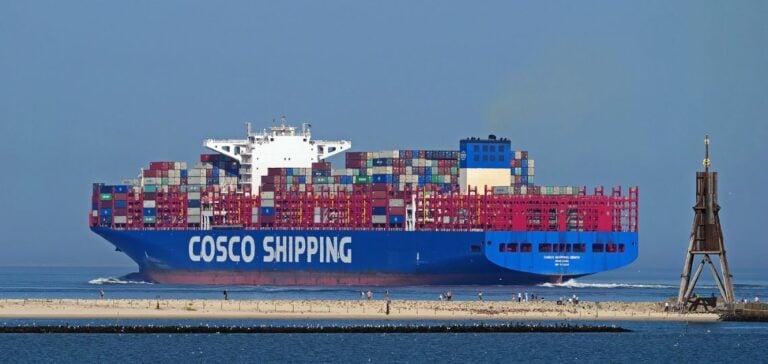The shipping industry, essential to global trade, is facing major environmental challenges.
To address these challenges, COSCO Shipping Corporation and Fortescue Metals Group have signed a preliminary agreement to develop a green fuel supply chain.
This partnership aims to reduce carbon emissions by using vessels powered by green ammonia.
A Strategic Partnership
The Shanghai-based Chinese shipping company and Fortescue, one of the world’s leading suppliers of iron ore, have agreed to build and operate vessels using green ammonia as fuel.
These vessels will transport iron ore and other minerals between China and Australia, helping to reduce carbon emissions along this crucial maritime corridor.
This agreement is part of a wider move to decarbonize the shipping industry, in response to regulatory pressures and global environmental objectives.
The partnership aims to promote sustainable development in the maritime sector.
“We are committed to strengthening our cooperation with global partners to promote green and sustainable development throughout the life cycle of the shipping industry,” says the Chinese company in a statement posted on WeChat.
Innovation and Sustainable Development
Fortescue has already carried out the world’s first trial of using ammonia as a marine fuel in the port of Singapore.
This initiative marks an important step towards the company’s goal of zero net Scope 3 emissions by 2040.
Recent discussions between Fortescue executives and potential partners in China underline the importance of international collaboration to accelerate the adoption of green fuel technologies.
The use of ammonia as a fuel poses challenges, particularly in terms of large-scale production, safety and cost.
However, initiatives such as this partnership demonstrate that innovative solutions can be developed through strategic alliances.
The success of these projects will depend on the companies’ ability to overcome technical challenges and adapt quickly to new technologies.
Outlook for the Maritime Sector
The transition to green fuels is essential to reduce the carbon footprint of the maritime sector.
The commitment of these two companies in this area could serve as a model for others.
By developing and deploying vessels powered by green ammonia, they are leading the way in meeting carbon emission reduction targets.
This collaboration could have a significant impact on reducing carbon emissions in the maritime sector, thereby contributing to global efforts to combat climate change.
The adoption of green fuels such as ammonia, while complex, is a crucial step towards a more sustainable future for the marine industry.
The initiatives taken illustrate the importance of innovation and collaboration in the transition to more sustainable practices.
By working together, these companies can overcome challenges and create solutions that will benefit the entire marine sector.






















